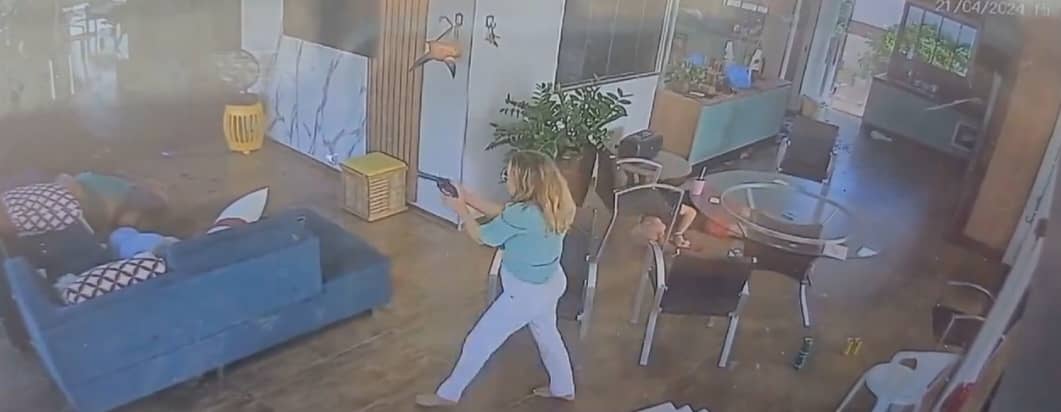SÃO PAULO – A group of 16 homeless people who had been squatting in a house owned by a Catholic Church in São Paulo was evicted by the police on November 17. The families are now back to the place where they lived before, under a bridge in a busy avenue in the eastern part of the city.
The house is owned by the local parish Saint Jude Thaddeus in the Tatuapé neighborhood and was used by the church for social assistance activities. Since the COVID-19 outbreak, it has remained closed, according to the Archdiocese.
In July of 2020, a group of homeless, including different families with children, left the communal area where they lived under a bridge and occupied the house.
“We did it because we were very worried about our kids. It was not safe for them to play on the street, because they could be hit by a car. There were rats everywhere,” said one of the occupants, who preferred to remain anonymous.
The Archdiocese of São Paulo petitioned for the eviction of the occupants in November of 2020, according to a story published by the news website Ponte.
The judge in charge of the case decided in favor of the eviction in March 2021 but postponed the implementation of the ruling because the National Justice Council (CNJ) had recommended that all collective evictions should be suspended during the pandemic.
CNJ’s resolution against the evictions was suggested by the National Conference of Bishops of Brazil (known as CNBB) in 2020 as a way of minimizing the impact of the lack of housing in the South American country during the COVID-19 crisis.
About 24 million Brazilians do not have a house or live in inadequate conditions. Several popular movements in the countryside and in the cities advocate for housing in Brazil, and the occupation of empty houses and buildings is one of the traditional forms of pressuring the government to intervene.
Numerous ecclesial movements and organizations are involved in advocating for housing reform and even in organized squatting in unoccupied properties.
That is why the archdiocese’s decision was a surprise for many in the country.
“We did not hope that we would be allowed to remain living in the house. But we hoped that we would receive some kind of assistance. Well, it’s owned by the Church, how can the Church leave all those people on the street?” the occupant said.
According to him, the group thought it would be informed ahead of time about the date of the eviction and hoped that the Church or the government would offer help for them to find a new place to live.
“Our kids were all enrolled in schools near the house. Now that we are on the street again, we cannot take them to school in that area every day,” he said.
The archdiocese said that São Paulo State’s Justice Court did not take into consideration that their decision was taken during the recommended period of suspension of evictions proposed by the CNJ.
Indeed, the CNJ’s resolution mentions that the evaluation of cases of eviction may take into consideration “the level of access of the impacted population to vaccines or available treatment for COVID-19.” In São Paulo, 90 percent of the adult population has been fully vaccinated.
The archdiocese argued that the occupants had looked for legal assistance, so they were informed of the lawsuit and of the date of the eviction. It also said that the Church paid trucks to carry the furniture of the occupants to a place of their choosing, and that social aid was offered to them by the city government.
“We have to emphasize, finally, that the reoccupation of that estate is not only a legal matter but also has a social aspect, given that it protected the occupants (invaders) themselves, who damaged the house by building partitions inside of it, thus generating risks for themselves,” the archdiocese’s statement said.
The archdiocese added that “undue occupation, house breaking, and the possession of private property are punishable crimes according to the Brazilian law.”
“[…] And the struggle for housing in an organized and fair way is not a negligible struggle but does not exempt the citizens of the fulfilment of duties and cannot overlap the rights of the others, especially when a social work can benefit many,” the statement concluded.
In the opinion of Father Júlio Lancelotti, the Archdiocese’s vicar for the homeless, organizations request the eviction of occupants in cases like that because they have the institutional duty to do so, but the real problem is the role of the State.
“What has been the role of the prosecutor’s office and of the public defenders in those cases? The number of occupations is rising, and of evictions too. But the judiciary system has no sensitivity to deal with this situation,” he told Crux.
Lancelotti said that the Brazilian society must “face this serious problem as a whole, no matter who the author [of the petition of eviction] is and which of the Republic’s power will decide for it or not.”
The group of occupants is now living on the street again, and is waiting for an alternative that can benefit all of them.
“We’ve been living together for years. We built a community,” the man, who is the father of two kids, said.














